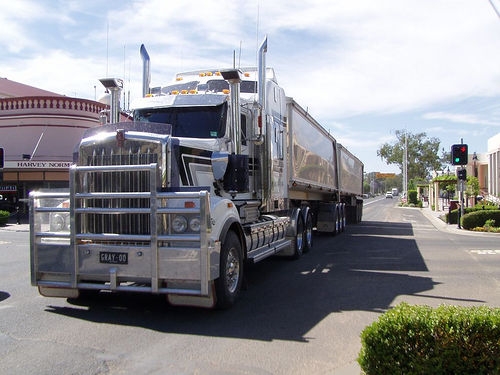
There are seven primary grades of diesel fuel which can be applied to most types of highway diesel engines. Several specifications are required for diesel fuel due to the variety of machinery and vehicles engines which require it. Specifications also vary to meet the required sulfur content standards established by the Food and Drug Administration (FDA). The grades for vehicles are set forth in the ASTM D975 standard. Heating fuels can be found in the ASTM D396 standard.
The FDA has set low sulfur standards for diesel used in highway travel. Therefore, the seven specifications for highway-use diesel indicate the sulfur (S) content of each grade in parts per million (PPM). As a general rule, the S500s, or "Low Sulfur" diesel fuels, meet the minimum sulfur content standards, whereas the S1's have the lowest sulfur content, dubbed "Ultra-low Sulfur" (ULSD). The S5000s are what might be referred to as the "regular" sulfur diesels, in that they have a greater sulfur content, closer to that which existed prior to the FDA's regulation.

Diesel specifications are determined by standards development organizations such as the American Society for Testing and Materials (ASTM). The methods used to determine the specifications for diesel fuel are: flash and cloud point; water and sediment; copper corrosion; conductivity; viscosity; carbon residue; ash; distillation; sulfur; aromaticity; as well as cetane number and index.

The 2-D class of diesel is mostly for use in vehicles whose load size and speed remain relatively consistent. The 2-D S15, S500 diesel fuel specifications have a greater energy output and serve as a better lubricant for engines with fuel injection. This is the most common diesel fuel category for highway use. Categorized along with these popular diesels is also the 2-D S5000, which is primarily used for such engines as those found in farm and industrial equipment, generators, and pumps.

The 1-D classes of diesel fuels are for those vehicles encountering the most inconsistent speeds and load sizes. The 1-D S5000 is a higher sulfur diesel fuel specification used primarily for off-road use. The 1-D S15 and S500 diesels are popular choices for highway travel in cold climates when engines may be more difficult to start. In fact, all of the 1-D specified fuels are ideal for cold temperatures and are generally higher in sulfur than the 2-D grades.

As a solution to the cold weather complications which correspond with vehicles that require ULSD, the Environmental Protection Agency recommends either blending the diesel with kerosene that has a 15-ppm sulfur content, or purchasing an anti-gelling diesel additive from an auto parts store. If the vehicle is currently inoperable, the FDA recommends that it be towed to an indoor storage area where the fuel can stabilize.